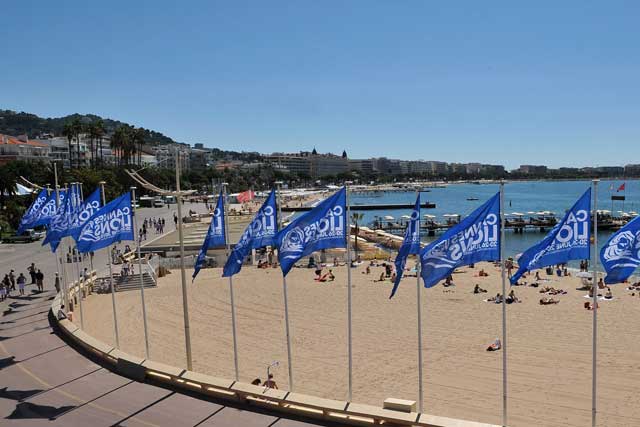
If you want to take a "glass-half-full" view of Britain's prospects of a healthy haul of Cannes Lions this year, then you'll be encouraged by the country's showing at the recent D&AD Awards.
Could the fact that UK agencies picked up 21 of the 66 yellow Pencils awarded herald an improved performance on the Riviera next week?
If you're more of a "glass-half-empty" person, you will be pointing to the Brits' less-than-scintillating return on investment at last year's festival. Not a single gold Lion in the Film category, just a sprinkling of gongs elsewhere. Only Abbott Mead Vickers BBDO prevented total embarrassment by scooping the Grand Prix for Creative Effectiveness with its "Sandwich" work for Walkers.
Indeed, there is a sadly compelling argument to be made that Cannes juries have ended their love affair with British creativity and that much more hope than expectation is being attached to more than 2,300 UK entries up for scrutiny this year.
Many suggest that Cannes judges neither understand the subtleties of British advertising nor see its relevance in a global advertising world, where strong visual ideas transcend national boundaries.
Andy Cheetham, the creative director at Cheethambell JWT, remembers having this forcefully brought home to him when sitting on an international D&AD jury judging the Hovis "go on lad" spot by MCBD, one of the most lauded UK commercials of recent years.
"The judges from outside the UK just didn't get it," he says. "They couldn't see the film's attention to detail that we could see." Tellingly, "go on lad" had to settle for a bronze Lion at Cannes.
Some wonder whether recent underachievement by UK agencies at Cannes is evidence that their heart is not really in it any more as competition for Lions grows ever more intense.
Simon Robinson, the integrated creative director at Kitcatt Nohr Digitas, was a Cannes judge last year. He says: "We seem to think that because we gave the world the 'launderette' commercial, we have a divine right to win. But a lot of work I had to judge didn't really have an insightful idea that would solve a business problem. From what I've seen, I don't expect this year to be a vintage one for the UK."
Others worry at the scale of the preparatory work that now goes in to making a case to a Cannes jury. Agencies increasingly feel that it is not enough to let a campaign speak for itself. A mini-documentary about its creation has to accompany the entry.
Leon Jaume, the WCRS executive creative director, says: "It's not so much a submission, more a presentation. Films telling the story of how the ad was made seem to be getting increasingly common each year."
However, Paul Brazier, AMV's executive creative director, insists there is no reason to believe recent Cannes showings indicate the UK has lost its creative mojo. Not when British ad regulations are much stricter than in many other countries, the economy is in recession and clients are so risk-averse, he points out.
And it's just as well to remember that Britain's AKQA was named the world's leading digital agency in The Gunn Report, while The Big Won pronounced AMV's "who killed Deon?" work for the Metropolitan Police the world's most-awarded TV campaign last year.
As Brazier says: "Things can't be all bad."
CREATIVE HEAD
Rosie Arnold, president, D&AD; deputy executive creative director, Bartle Bogle Hegarty
"I'm optimistic about Cannes because I think the UK has had a good year in terms of creative work. I'd be amazed if the John Lewis Christmas commercial didn't do well.
"But you only have to look at Colombia's performance at the D&AD Awards to realise how much better work from across the world is becoming.
"I wonder if our recent performances at Cannes have anything to do with creatives being seduced by new technology, resulting in work that's a triumph of style over substance.
"Also, at a time when clients need to be creatively brave, many are frightened."
CREATIVE HEAD
Paul Brazier, executive creative director, Abbott Mead Vickers BBDO
"I'm not convinced the UK's creative output was underwhelming last year, though perhaps Cannes wasn't our best showcase. Emerging markets are gaining creative ground, with strong creative focus, less rigorous rules and less encumbered clients, and the US continues to dominate digital.
"The UK, though, had a strong presence on shortlists across the board, and the fact a UK agency was awarded the inaugural Grand Prix for Effectiveness, demonstrating an incontrovertible link between strong creative and effective advertising, should encourage clients to be bold and trust their instincts."
CREATIVE HEAD
Andy Cheetham, creative director, Cheethambell JWT
"My gut feeling is that it won't be a vintage year for the UK at Cannes. We tend to be preoccupied with TV but, in many respects, other categories are becoming more important.
"A lot of what we do in the UK struggles at international awards. It goes right over the judges' heads. We not only have to produce work that's great but also highly visual and simple enough to be successful in a global market.
"And because clients want instant returns on their ad investment, there's less chance to do big campaigns that need time to establish themselves."
CREATIVE HEAD
Leon Jaume, executive creative director, WCRS
"I don't think the Cannes jurors are unfair to the UK. They can only judge what's in front of them and it remains to be seen whether the John Lewis Christmas commercial will translate into something they understand.
"It's not that British creativity is getting worse. It's just that everybody else is getting better. South America, for example, is producing some very strong work.
"Hard times ought to provide opportunities for good work that can make budgets go further, but some of the work I've judged in recent years has been showing a lack of confidence."

